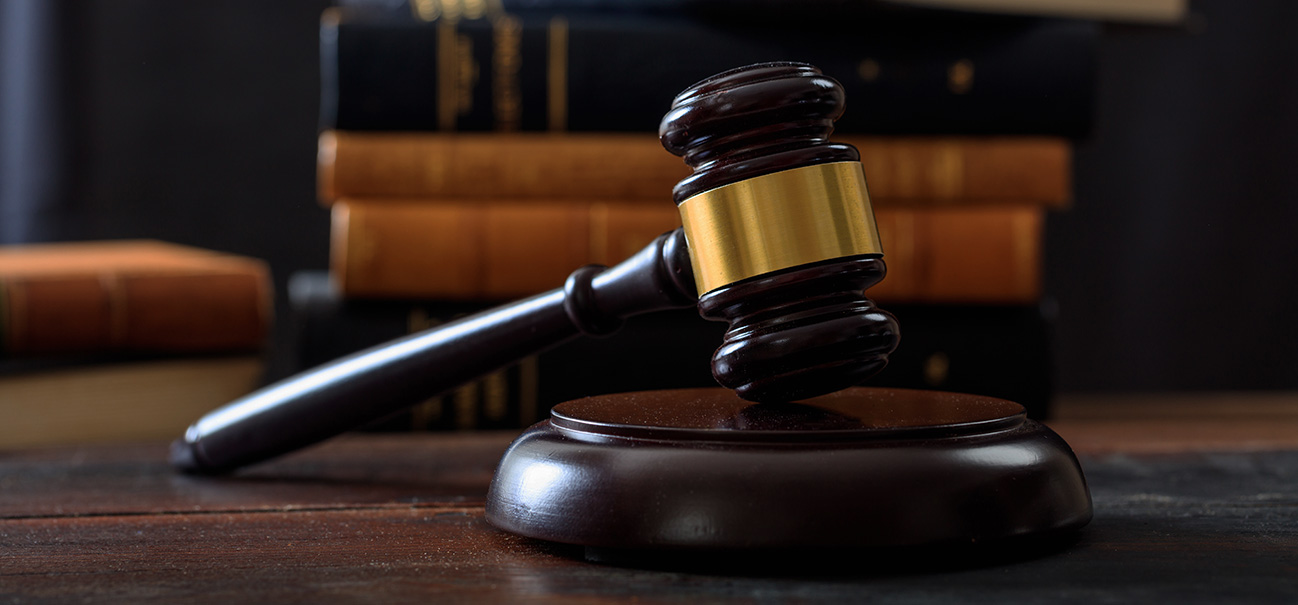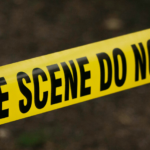Relevant Evidence is Evidence that Makes an Important Fact More or Less Likely to be True
It is essential that you have an attorney who understands what is “relevant” under the Michigan Rules of Evidence so that irrelevant evidence that might be harmful does not get admitted at a hearing or trial.

Only Relevant Evidence is Admissible In Court
In the recent case regarding relevant evidence of People v Dennis Lee Tomasik, the Michigan Supreme Court determined that the trial court abused its discretion by admitting the recording of the defendant’s interrogation at the trial. Nothing of any relevance was said during the interrogation, so it should not have been admitted. The court decided that admitting irrelevant evidence amounted to plain error that affected the defendant’s substantial rights and seriously affected the fairness, integrity, or public reputation of the court proceedings.
The court further stated that in a trial when there is a credibility contest between the complaining witness and the defendant, the prosecutor cannot introduce statements from the office in charge of the case to vouch for the credibility of the complaining witness and that the office believes the defendant to be guilty.
The Rules of Evidence rules are very complicated, and understanding the nuances of the rules can prove to be an invaluable advantage in a trial or evidentiary hearing. Shockingly, many criminal defense lawyers struggle to understand the nuances and complexities of the rules regarding relevant evidence. It is important that you have the best legal help available if you are facing criminal charges. A prosecutor will try to convict you, and they will be well-trained on how to use the Rules of Evidence to gain every possible advantage. It would be best to have someone working for you with vast expertise in the evidence rules and trial procedure so the tables can be turned to your advantage. The attorneys with LEWIS & DICKSTEIN, P.L.L.C. take great pride in their knowledge and expertise in the Rules of Evidence and our ability to give our clients every possible advantage in court.
How do top criminal defense lawyers use the Michigan Rules of Evidence to give their clients an advantage in court?
A top criminal defense lawyer in Michigan would use the Michigan Rules of Evidence to gain an advantage over the prosecution in several strategic ways, ensuring the best possible defense for their client:
- Challenging Admissibility of Evidence: Expertise in the Michigan Rules of Evidence allows a defense attorney to challenge the admissibility of evidence presented by the prosecution. By objecting to evidence that was improperly obtained, is irrelevant, or lacks proper foundation, the defense can prevent damaging evidence from being considered by the jury.
- Suppressing Illegally Obtained Evidence: Knowledge of rules regarding the legality of evidence collection is crucial. A skilled lawyer would move to suppress evidence gathered in violation of constitutional rights, such as illegal searches and seizures, thereby weakening the prosecution’s case.
- Utilizing Expert Testimony Effectively: A proficient defense attorney would know how to use expert witnesses effectively under the Michigan Rules of Evidence. They can introduce expert testimony to challenge the prosecution’s evidence, provide alternative explanations for the evidence, or question the credibility of the prosecution’s expert witnesses.
- Cross-Examination Strategies: Mastery of evidence rules is essential for effective cross-examination of witnesses. The lawyer can exploit inconsistencies, biases, or lack of reliability in witness testimonies, thus undermining the prosecution’s case.
- Presenting Favorable Evidence: A top lawyer would be adept at introducing evidence that favors the defense, while ensuring compliance with evidence rules. This includes strategically presenting character evidence, alibi witnesses, or other exculpatory evidence.
- Limiting Prejudicial Impact: The defense can argue against introducing evidence that is more prejudicial than probative under Rule 403 of the Michigan Rules of Evidence. This ensures that the jury is not unduly influenced by evidence that could unfairly sway their opinion.
- Highlighting Reasonable Doubt: Through the strategic use of the rules, including MRE 401 regarding relevant evidence, the defense can emphasize the burden of proof on the prosecution and highlight areas of reasonable doubt. This is achieved by questioning the accuracy, credibility, and reliability of the prosecution’s evidence.
- Using Hearsay Rules to Advantage: Understanding the complexities of hearsay rules enables the defense to challenge hearsay evidence presented by the prosecution while also knowing when to leverage exceptions to these rules for their benefit. Additionally, a top criminal defense lawyer can use the nuances in the Rules of Evidence to admit favorable evidence other lawyers might not know how to utilize.
- Ensuring Proper Jury Instructions: A knowledgeable defense lawyer can ensure that the jury is properly instructed on the legal standards that apply to the case, including how to weigh evidence and the requirement for the prosecution to prove guilt beyond a reasonable doubt.
- Preparing for Appeals: In the event of a conviction, a deep understanding of evidence rules can be crucial in identifying grounds for an appeal based on evidentiary errors.
By effectively leveraging the Michigan Rules of Evidenly, a top criminal defense lawyer can create a strong defense strategy, challenge the prosecution’s case, and increase the likelihood of a favorable outcome for their client.

The Dangers of Representation By Ineffective Legal Counsel
Having a criminal defense lawyer who is not an expert in the rules of evidence, including the rules regarding relevant evidence, and criminal law, can pose significant risks and disadvantages for a defendant, particularly in the complex landscape of criminal proceedings. Here are some key dangers associated with such a situation:
- Ineffective Representation: A fundamental understanding of evidence rules and criminal law is crucial for effective legal representation. A lawyer lacking this expertise might miss critical opportunities to challenge the prosecution’s case, such as failing to object to inadmissible evidence or not recognizing when evidence was improperly obtained. Most wrongful convictions result, in one way or another, from ineffective assistance of counsel.
- Missed Opportunities for Defense: An attorney not well-versed in criminal law might overlook potential defense strategies. This includes not recognizing affirmative defenses, failing to identify procedural errors, or not understanding the nuances of legal standards that could be pivotal in a case.
- Compromised Strategy Development: Developing a robust defense strategy requires deep knowledge of criminal law and evidence rules. An inexperienced, general practice or court-appointed lawyer might be unable to construct a coherent or compelling defense, potentially leading to a weaker negotiation position or a less effective presentation at trial.
- Risk of Prejudicial Errors: Knowledge of evidence rules is essential to prevent the introduction of prejudicial or irrelevant information that could unfairly sway a jury. An attorney unfamiliar with these rules might allow damaging evidence to be considered by the jury, impacting the fairness of the trial.
- Inadequate Cross-Examination: Effective cross-examination of witnesses is a critical skill in criminal defense. Lack of expertise in evidence rules can lead to ineffective cross-examinations, missing the opportunity to discredit the prosecution’s witnesses or evidence.
- Potential for Appeals Based on Ineffective Assistance of Counsel: If a defense lawyer’s lack of expertise in evidence and criminal law leads to a conviction, it may grounds for an appeal based on ineffective assistance of counsel. However, this process can be lengthy, emotionally draining, and does not guarantee a reversal of the verdict.
- Increased Likelihood of Conviction or Harsher Sentences: Ultimately, the most significant risk is that the defendant faces a higher likelihood of conviction or receives a harsher sentence than they might have with a more knowledgeable and experienced attorney. An experienced, savvy, retained defense lawyer gives their client the best odds of a lenient sentence and extraordinary plea bargain.
In criminal cases, the stakes are high, and the complexities of legal procedures and evidence rules make it imperative for a defendant to have a skilled and knowledgeable defense attorney to ensure the best possible outcome. If a lawyer doesn’t have expertise in the Michigan Rules of Evidence, including the rules regarding relevant evidence, their client has little hope of winning.
The Most Prepared, Knowledgeable Attorneys Get the Best Results
At any hearing or trial, only evidence relevant to the facts of the case should be allowed to be considered by a judge or jury. It often happens that an attorney who is not well prepared, well trained, or experienced will not know what is relevant (or misses something), may allow irrelevant evidence to be admitted, or simply may not know the procedure for admitting necessary evidence. This can be fatally harmful to a defendant’s case. This is why you want an attorney representing you who has the experience and expertise to know what should and should not be allowed to be admitted in court. It often is a split-second decision during a hearing or trial, and the most well-versed, articulate, and well-prepared lawyer usually wins!

Michigan’s Premier Trial Defense Team
The attorneys at LEWIS & DICKSTEIN, P.L.L.C. are well recognized for their successful trial work. If you want the best attorney by your side, you owe it to yourself to contact the law firm of LEWIS & DICKSTEIN, P.L.L.C. The firm’s attorneys have decades of experience handling criminal defense matters and using the Michigan Rules of Evidence, like those regarding relevant evidence, to our client’s advantage. They take great pride in their reputation for success and their reputation with former clients, the judiciary, and other lawyers.
Call us today at (248) 263-6800 for a free consultation or complete an online Request for Assistance Form. We will contact you promptly and find a way to help you.












